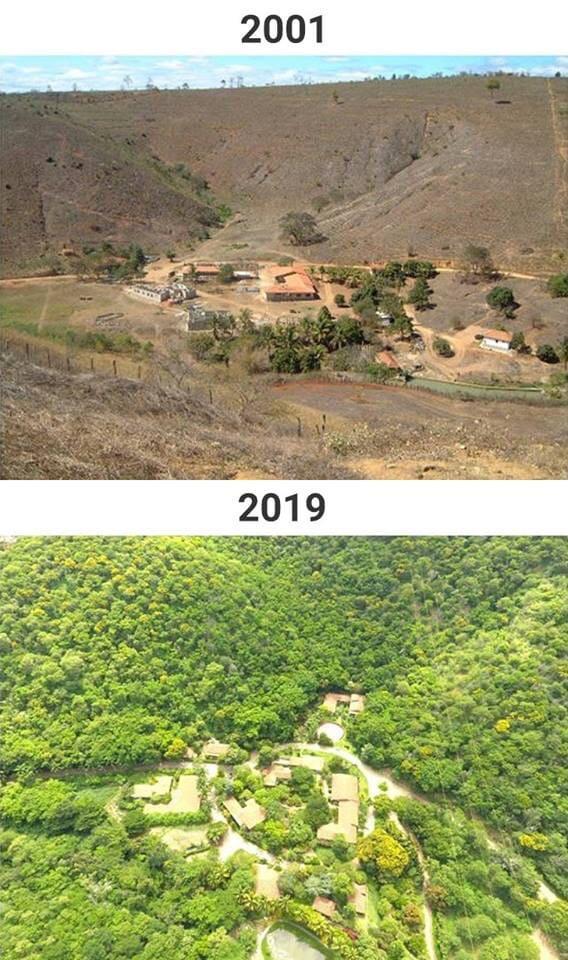Chaos3612 - Chaotic Dynamics

More Posts from Chaos3612 and Others
Remember the Women Who Made #Apollo50th Possible
As the world celebrates the 50th anniversary of the historic Moon landing, we remember some of the women whose hard work and ingenuity made it possible. The women featured here represent just a small fraction of the enormous contributions made by women during the Apollo era.
Margaret Hamilton, Computer Programmer

Margaret Hamilton led the team that developed the building blocks of software engineering — a term that she coined herself. Her systems approach to the Apollo software development and insistence on rigorous testing was critical to the success of Apollo. In fact, the Apollo guidance software was so robust that no software bugs were found on any crewed Apollo missions, and it was adapted for use in Skylab, the Space Shuttle and the first digital fly-by-wire systems in aircraft.
In this photo, Hamilton stands next to a stack of Apollo Guidance Computer source code. As she noted, “There was no second chance. We all knew that.”
Katherine Johnson, Aerospace Technologist

As a very young girl, Katherine Johnson loved to count things. She counted everything, from the number of steps she took to get to the road to the number of forks and plates she washed when doing the dishes.
As an adult, Johnson became a “human computer” for the National Advisory Committee for Aeronautics, which in 1958, became NASA. Her calculations were crucial to syncing Apollo’s Lunar Lander with the Moon-orbiting Command and Service Module. “I went to work every day for 33 years happy. Never did I get up and say I don’t want to go to work.“
Judy Sullivan, Biomedical Engineer

This fabulous flip belongs to biomedical engineer Judy Sullivan, who monitored the vital signs of the Apollo 11 astronauts throughout their spaceflight training via small sensors attached to their bodies. On July 16, 1969, she was the only woman in the suit lab as the team helped Neil Armstrong suit up for launch.
Sullivan appeared on the game show “To Tell the Truth,” in which a celebrity panel had to guess which of the female contestants was a biomedical engineer. Her choice to wear a short, ruffled skirt stumped everyone and won her a $500 prize. In this photo, Sullivan monitors a console during a training exercise for the first lunar landing mission.
Billie Robertson, Mathematician

Billie Robertson, pictured here in 1972 running a real-time go-no-go simulation for the Apollo 17 mission, originally intended to become a math teacher. Instead, she worked with the Army Ballistic Missile Agency, which later became rolled into NASA. She created the manual for running computer models that were used to simulate launches for the Apollo, Skylab and Apollo Soyuz Test Project programs.
Robertson regularly visited local schools over the course of her career, empowering young women to pursue careers in STEM and aerospace.
Mary Jackson, Aeronautical Engineer

In 1958, Mary Jackson became NASA’s first African-American female engineer. Her engineering specialty was the extremely complex field of boundary layer effects on aerospace vehicles at supersonic speeds.
In the 1970s, Jackson helped the students at Hampton’s King Street Community center build their own wind tunnel and use it to conduct experiments. “We have to do something like this to get them interested in science,” she said for the local newspaper. “Sometimes they are not aware of the number of black scientists, and don’t even know of the career opportunities until it is too late.”
Ethel Heinecke Bauer, Aerospace Engineer

After watching the launch of Sputnik in October 1957, Ethel Heinecke Bauer changed her major to mathematics. Over her 32 years at NASA, she worked at two different centers in mathematics, aerospace engineering, development and more.
Bauer planned the lunar trajectories for the Apollo program including the ‘free return’ trajectory which allowed for a safe return in the event of a systems failure — a trajectory used on Apollo 13, as well as the first three Apollo flights to the Moon. In the above photo, Bauer works on trajectories with the help of an orbital model.
Follow Women@NASA for more stories like this one, and make sure to follow us on Tumblr for your regular dose of space: http://nasa.tumblr.com.

Do you know that as a PhD student at my university they let you check out books for 4 months?
Here I am, I become the hoarder of books that I was always meant to be
Friendly reminder that Vincent van Gogh willingly checked himself into an asylum so that he could get better, resulting in him creating some of the most iconic paintings of his entire career, done in the asylum, when he was being treated 24/7, because he finally didn’t have to struggle with his demons and could instead focus on his muse, WHICH WERE TWO DIFFERENT THINGS!
Remember this little insignificant painting?

How about this one?

Check this one out:

All of these and more were painted in the asylum when he was receiving treatment for his mental illnesses and I know I just said that but I said it again and I’m saying it a third time until you dramatic abled assholes understand!
VINCENT VAN GOGH
- KNEW THAT HE WAS MENTALLY ILL
- WANTED TO CHANGE THAT
- WENT TO AN ASYLUM
- GOT THE HELP HE NEEDED
- PAINTED SOME ICONIC MASTERPIECES AS A RESULT!
SO DON’T YOU DARE COME OUT HERE WITH THIS, “I WISH I WAS DEPRESSED SO I COULD BE AS CREATIVE AS VAN GOGH” BULLSHIT BECAUSE EVEN HE KNEW THAT HIS DEMONS WERE HARMING HIS WORK, AND MORE IMPORTANTLY, HIS HEALTH, AND HE DID EVERYTHING WITHIN HIS POWER TO FIGHT THEM EVERY SINGLE DAY OF HIS LIFE, UNTIL THEY ENDED UP WINNING!
Today I learned about a couple that decided to rebuild their deserted piece of land of 600 hectares in Aimorés, Brazil. They planted more than 2 million tree saplings. As a result, the site has 293 plant species, 172 bird species and 33 animal species, some of which were on the verge of extinction. It only took 18 years!

In the early 1990s, Brazilian photo-journalist Sebastião Ribeiro Salgado was stationed in Rwanda to cover the horrific accounts of Rwanda genocide. The on-ground experience left him traumatised. In 1994, he was returning to his home in Minas Gerais, Brazil, with a heavy heart, hoping to find solace in the lap of a lush green forest, where he had grown up.
But, instead, he found dusty, barren land for miles and miles, in place of the forest. In only a few years, his beautiful hometown underwent rampant deforestation, leaving it fallow and devoid of all the wildlife. For him, everything was destroyed. “The land was as sick as I was. Only about 0.5% of the land was covered in trees,’ he shared in an interview with The Guardian. Salgado was shattered.
Saldago’s Wife Wanted to Recreate The Forest
It was at this time that Salgado’s wife Lélia made a near-impossible proposal. She expressed her wish to replant the entire forest. Salgado supported her idea, and together the couple set out on a heroic mission. Brazil Photographer Forest
Salgado bought an abandoned cattle ranch from his parents and started building a network of enthusiastic volunteers and partners who would fund and sustain their mammoth project. In 1998, the couple founded Instituto Terra – the organisation which tirelessly worked to bring a forest back to life.

PNHR Bulcão Farm | by Weverson Rocio – 2012
Salgado sowed the first seed in December 1999. The couple hired around 24 workers in the beginning and was later joined by numerous volunteers over the years. They worked day and night – from uprooting the invasive weeds to planting new seedlings. Soon, their hard work bore fruit as tropical trees native to the region started flourishing in the area. They received a donation of over one lakh saplings which gave rise to a dense forest. The handcrafted forest comprises mostly of local arboreal and shrub varieties. Latest satellite imagery revealed how a soothing green forest cover has enveloped the area which once was a devastating arid eyesore.Since 1998, they have planted more than 2 million saplings of 293 species of trees and rejuvenated 1,502 acres of tropical forest. The biodiversity-rich zone has recently been declared as a Private Natural Heritage Reserve (PNHR).
The Impact of Salgado’s Forest
The afforestation project, which is undoubtedly one of the greatest environmental initiatives in the world, has also helped to control soil erosion and revived the natural springs in the area. Eight water springs which once dried up, flow at around 20 litres per minute at present, relieving the drought-prone region of its woes. Salgado’s forest also happens to solve the much-debated notion about climate change, proving that the trend can be reversed if tried. His forest has resulted in causing more rainfall to the area and cooler weather, bringing a drastic and desirable change in the climate.

Instituto Terra’s Fauna | by Leonardo Merçon – 2012
The most important positive aspect of the forest till now has to be the return of the lost fauna. More than 172 species of birds, 33 species of mammals, 15 species of amphibians and reptiles have been spotted in the forest interiors, something which was beyond imagination two decades ago. Many of the plant and animal species in his forest actually feature on the endangered list.
Efforts For Good
Climate change is a harsh reality. Mankind is bearing the brunt of the relentless destruction they inflicted on the planet. Yet, people like Salgado and Lélia fill us with hope, proving that patience and persistence can be our keys to heal the wounds of nature. If two people can create a 1502-acre forest in just 20 years, then imagine how much can be done if everyone comes together to protect the environment. It must be reminded that for every tree we plant, we are adding 118 kgs of oxygen to the air every year, and reducing the carbon footprint by 22 kgs.
Efforts For Good urges all the readers to actively engage in planting trees and gradually turn this into a fixed habit.
Sources: http://www.scienceinsanity.com/2019/03/brazilian-couple-created-1502-acre.html
https://www.reddit.com/r/interestingasfuck/comments/bg0ebn/a_couple_decided_to_rebuild_their_deserted_piece/
![[077/100] 22/06/19](https://64.media.tumblr.com/84405cd252f73576bf4793447b09c4ec/tumblr_ptiltgs1iC1y9i77do2_500.jpg)
![[077/100] 22/06/19](https://64.media.tumblr.com/18324adae6e64c6d26483d2555292014/tumblr_ptiltgs1iC1y9i77do1_500.jpg)
[077/100] 22/06/19
It’s all about statistics today.
I know I used to give more extensive and more detailed explanations of what I was doing/studying but since I’m sitting for three exams in three weeks I’m not spending a lot of time online… I also will be sitting for some final exams in about a month or so, so I’m already preparing them and that only takes a lot of time and effort.

-
 oxfordsonnets reblogged this · 2 months ago
oxfordsonnets reblogged this · 2 months ago -
 klarhys-j-springthorn liked this · 7 months ago
klarhys-j-springthorn liked this · 7 months ago -
 thegingerlili liked this · 7 months ago
thegingerlili liked this · 7 months ago -
 reversetimelord reblogged this · 7 months ago
reversetimelord reblogged this · 7 months ago -
 reversetimelord reblogged this · 7 months ago
reversetimelord reblogged this · 7 months ago -
 reversetimelord liked this · 7 months ago
reversetimelord liked this · 7 months ago -
 shakespeareanqueer reblogged this · 7 months ago
shakespeareanqueer reblogged this · 7 months ago -
 shakespeareanqueer liked this · 7 months ago
shakespeareanqueer liked this · 7 months ago -
 weirdograph liked this · 1 year ago
weirdograph liked this · 1 year ago -
 predvisconscheck liked this · 1 year ago
predvisconscheck liked this · 1 year ago -
 nicotinedaydreamss reblogged this · 1 year ago
nicotinedaydreamss reblogged this · 1 year ago -
 myjourneyinfaith reblogged this · 2 years ago
myjourneyinfaith reblogged this · 2 years ago -
 themetesterfromhell reblogged this · 2 years ago
themetesterfromhell reblogged this · 2 years ago -
 verooing reblogged this · 2 years ago
verooing reblogged this · 2 years ago -
 mytrippiehippie reblogged this · 2 years ago
mytrippiehippie reblogged this · 2 years ago -
 my-meadowlark reblogged this · 2 years ago
my-meadowlark reblogged this · 2 years ago -
 onsrastudios liked this · 2 years ago
onsrastudios liked this · 2 years ago -
 limlnal liked this · 2 years ago
limlnal liked this · 2 years ago

Small and angry.PhD student. Mathematics. Slow person. Side blog, follow with @talrg.
213 posts








